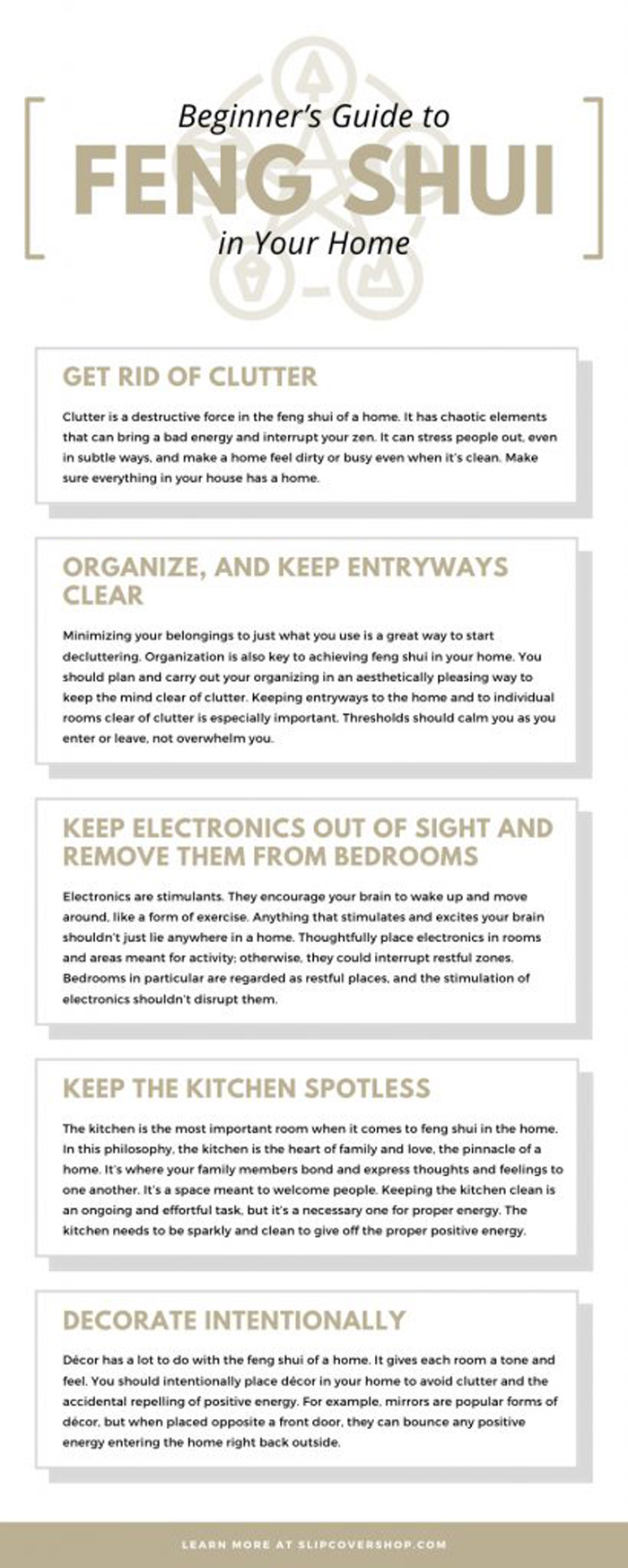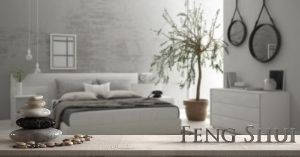Designing a home is a unique task. The home’s layout and design should mesh with the style preferences, lifestyle, and desires of the people who live in it. Feng shui is a popular yet difficult-to-achieve design philosophy meant to connect people to their environments in a harmonious way. If you’re thinking about using feng shui, check out this beginner’s guide to feng shui in your home to discover the basics.
Get Rid of Clutter
Clutter is a destructive force in the feng shui of a home. It has chaotic elements that can bring a bad energy and interrupt your zen. It can stress people out, even in subtle ways, and make a home feel dirty or busy even when it’s clean. Make sure everything in your house has a home.
Organize, and Keep Entryways Clear
Minimizing your belongings to just what you use is a great way to start decluttering. Organization is also key to achieving feng shui in your home. You should plan and carry out your organizing in an aesthetically pleasing way to keep the mind clear of clutter. Keeping entryways to the home and to individual rooms clear of clutter is especially important. Thresholds should calm you as you enter or leave, not overwhelm you.
Keep Electronics Out of Sight and Remove Them from Bedrooms
Electronics are stimulants. They encourage your brain to wake up and move around, like a form of exercise. Anything that stimulates and excites your brain shouldn’t just lie anywhere in a home. Thoughtfully place electronics in rooms and areas meant for activity; otherwise, they could interrupt restful zones. Bedrooms in particular are regarded as restful places, and the stimulation of electronics shouldn’t disrupt them. Installing a TV in a bedroom, having a smart home assistant, or playing on a cell phone before bed are commonplace, but they have no home in a house that follows feng shui rules.
Keep the Kitchen Spotless
The kitchen is the most important room when it comes to feng shui in the home. In this philosophy, the kitchen is the heart of family and love, the pinnacle of a home. It’s where your family members bond and express thoughts and feelings to one another. It’s a space meant to welcome people. Keeping the kitchen clean is an ongoing and effortful task, but it’s a necessary one for proper energy. The kitchen needs to be sparkly and clean to give off the proper positive energy. You should only use the kitchen table for eating; designate a separate workspace homework, work, and play. The stove is an especially important part of feng shui. A stove can bring good fortune, and it attracts abundance. For this reason, it’s essential to keep yours clean and grease-free to avoid tainting the good luck.
Decorate Intentionally
Décor has a lot to do with the feng shui of a home. It gives each room a tone and feel. You should intentionally place décor in your home to avoid clutter and the accidental repelling of positive energy. For example, mirrors are popular forms of décor, but when placed opposite a front door, they can bounce any positive energy entering the home right back outside. Excess décor can add to clutter and make a room feel closed off and disordered. When placing décor in a room, ensure it adds something positive to the space before making it a permanent fixture.
Incorporate Plants, Natural Elements, and Positive Additions
Any décor in your home should add something to it. Feng Shui and minimalism are vastly different philosophies of home design, but they do share some things in common. Too much décor can bog down a room and minimize the effects of its positive energy. When you find spots that feel empty or as though they’re sucking energy, add a live plant. Plants purify air and provide a happy, green energy to the room. Things with which you decorate your home should radiate happiness and positivity.
Don’t Forget About Bathrooms
Bathrooms don’t carry an energy that should be spread throughout the home. They’re meant for isolation and functionality. Leaving toilet seats ups, cabinets open, drawers half closed, and doors ajar are all ways to help the bathroom energy seep into the rest of the home. Close toilet seats when they’re not in use; fully shut the cabinets; and ensure drawers are fully closed when you’re done using them to preserve order in the bathroom. In the feng shui philosophy, leaving a bathroom door open is a gateway to letting the negative bathroom energy spread throughout the rest of the home, overshadowing some of the positive vibes. Another thing is leaky faucets. Fix these immediately to avoid the extremely bad luck that comes from faucet leaks. These leaks are thought to symbolize abundance and happiness leaking away.
Don’t Forget To Clean Incidentals
Getting into a cleaning routine means a healthier, happier home without the overwhelming feeling of needing to clean everything all at once. Cleaning routines need disruption sometimes to allow you to attend to the really dirty stuff that often falls through the cracks. Forgetting to clean bathroom rugs, light switches, and walls, for instance, can negatively affect the feng shui in your home. Add the items in your home that you might overlook during routine cleanings to a list, and clean them on a schedule to avoid dirt and dust pileups. This is especially true of walls. The walls in your home may get dirty, or the color may fade; when this happens in feng shui homes, it’s a sign it’s time to repaint to give the house a fresh, positive feel. This is also true of upholstered furniture. When upholstered furniture fades or stops feeling fresh, reupholstering it can be a lot of work—but putting a simple slipcover over your old sofa or futon covers over your convertible furniture freshens your home and cleans up stale energy. There’s a lot of rules when it comes to feng shui. Feng shui is a truly holistic method to happiness and positivity in the home and heart. This is simply a beginner’s guide to feng shui in your home, but there’s much literature on creating a positive environment for yourself. 

